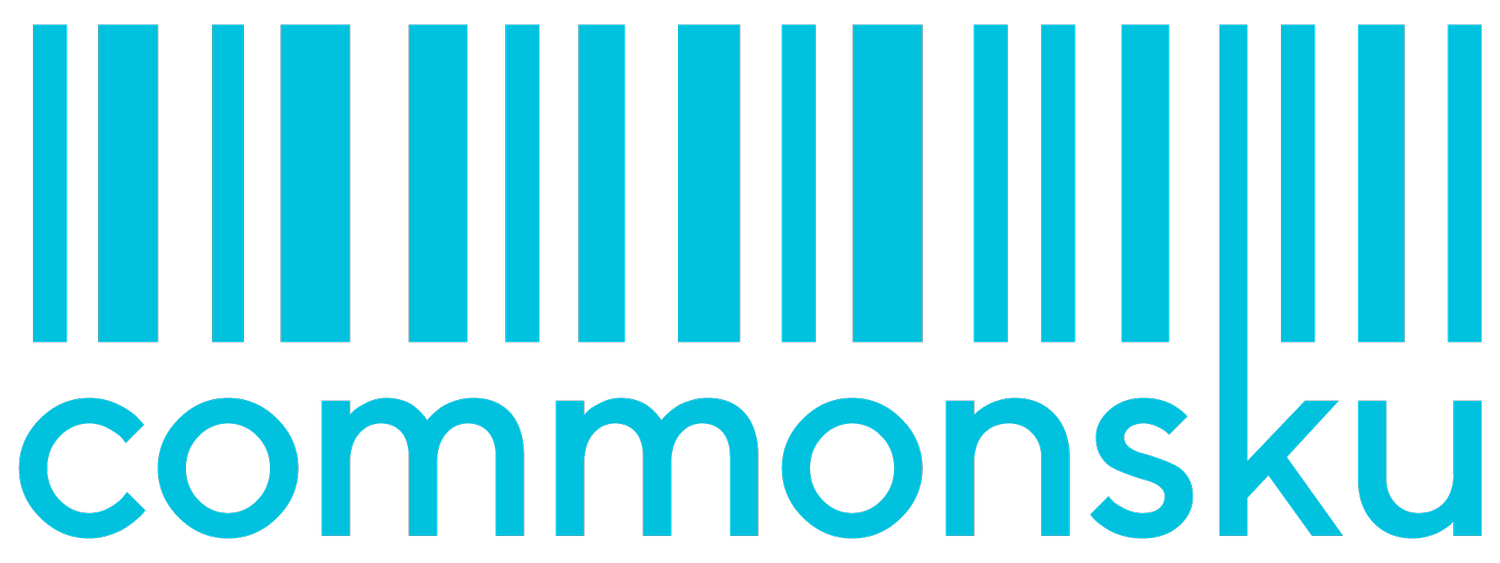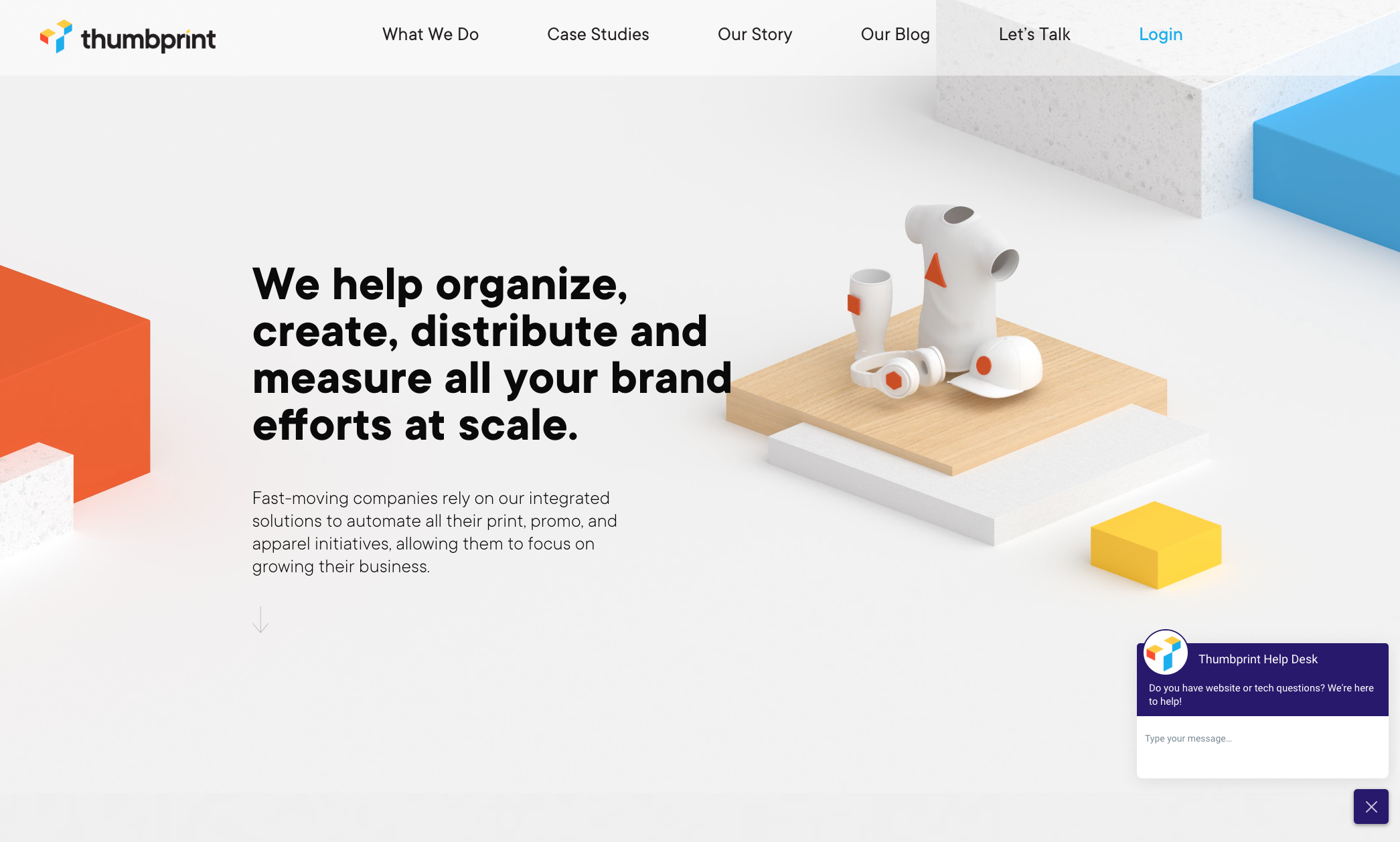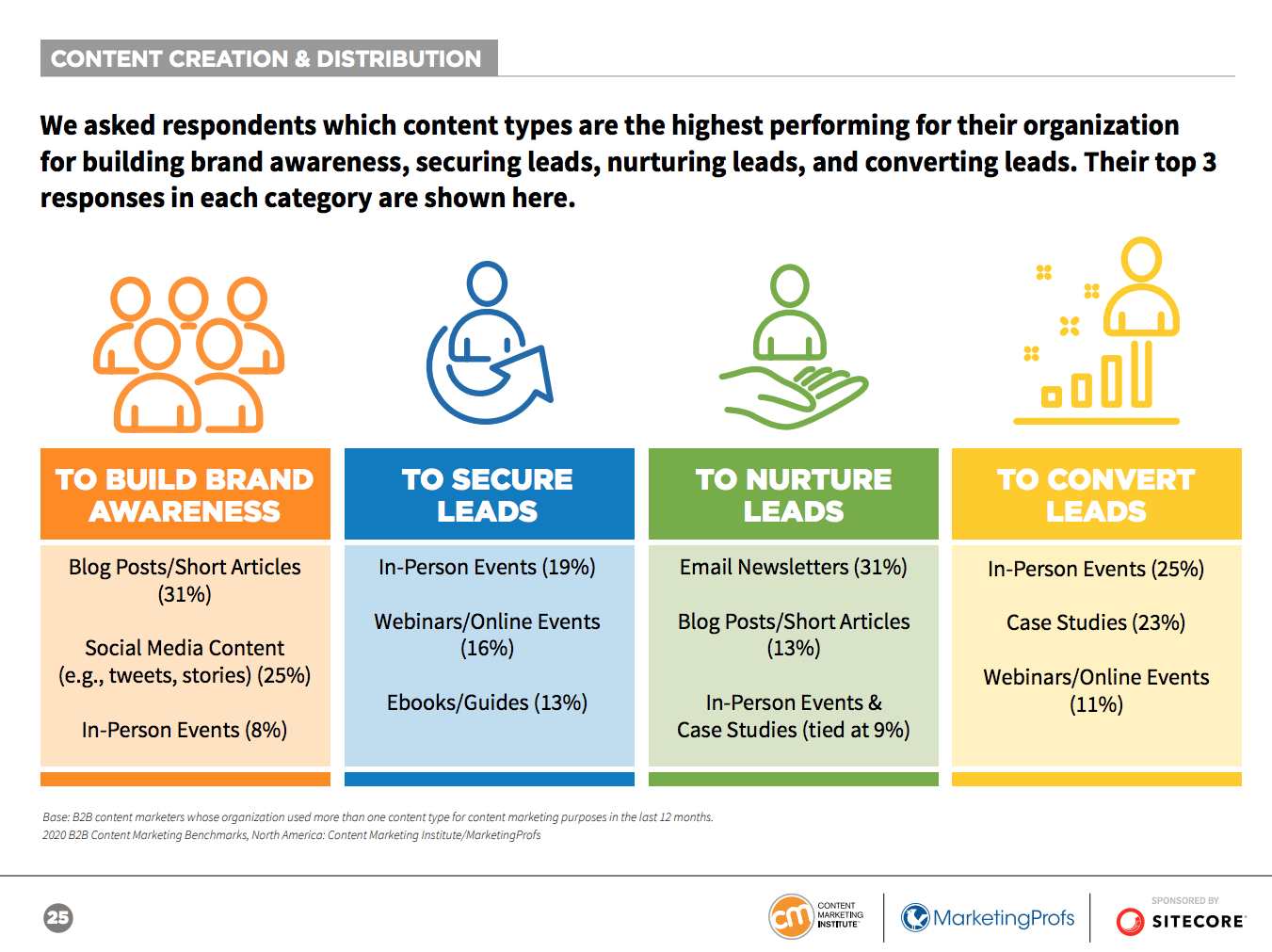The 6 Most Effective Marketing Channels for Promotional Products Pros (Marketing Series, Part 3)
We kicked off a new marketing series and the overall theme is about focus. Our first post was about the marketing mistakes that keep you from growing and our second post was the two killer questions to give your marketing focus. In this instalment, we’re counting down the most effective channels for promotional product marketing pros as proven by some of our most successful peers in the promo space!
Have you ever gone to the store to pick out a new brand of toothpaste or shampoo and found yourself hypnotized as you stare at a wall of (what seems like) hundreds of options?
Or, how about settling into your comfy sweats on a Friday night to relax and binge a movie only to find yourself, an hour later, paralyzed in a haze of indecision, brain-numb from sifting through too many options.
Yeah, me neither.
It’s called overchoice. And it’s a real problem, because, just like choosing a movie to watch, it delays decision-making. And the bigger the potential for success or risk of failure, the longer we delay.
We deal with overchoice in business too. Your marketing for instance. Marketing is mind-boggling. Too many options; too little time. Most distributors are paralyzed by overchoice: Which social media channel should we use? Should we do an email newsletter or a blog? Do I use Wordpress or Squarespace? Mailchimp or Constant Contact? Plus, trying to prioritize marketing within the demands of a deadline-driven business can drive you a little crazy.
So, we’ve considered all the options and made choosing simpler. Here are the six most effective marketing channels you should invest in, by order of importance:
Channel #1: Swag
I know. You think you do this.
But do you do self-promotions with intent or do you just buy what’s on sale or what you think is “cool”, slap a logo on it, and send it to clients (or worse, let it sit on a shelf)? The most successful distributors never order a self-promo item without knowing exactly how they’ll execute it through a strategic campaign. Distributors like RIGHTSLEEVE send very targeted campaigns to their top customers and prospects (like this rad Road Trip kit sent to clients during vacation season last year). Paperclip Promotions calls their kits “Clip Kits” and you can learn about how they execute them here. Never order a product without a purpose. After all, your clients never order a promotional product without a purpose and neither should you.
And what about specs or virtual samples? You are creating spec or virtual collections for your best clients, riiiiggghhtt? The most successful distributors do, systematically (not occasionally). They don’t do this “when they have time,” they don’t do this when some supplier drops by their office and triggers a free-spec offer, they create collections for their clients each quarter or each season, like clockwork.
Lastly, if you laid out a sample of each of the self-promo products that you’ve bought this year onto one table, would it tell a cohesive story? What story would it tell? Was each product part of a campaign? Part of a well-executed plan? Or simply the latest, shiniest object you saw at Expo?
Do swag, my friends, but do swag proud! Prove our medium’s effectiveness to your clients by demonstrating promo with purpose and you’ll earn the respect of your audience and win more business.
Channel #2: Your website
If your website is one of those templated product search sites that makes you look like you sell everything to anybody, stop now and fix it.
The most successful distributors have websites that convey a unique story. Their sites are a personification of their brand, in other words, they treat their website as if it were a person, their sites have a personality, a voice, a distinct look, a strong purpose. They speak to a specific audience and above all, they do not shill product, they provide solutions . Take our friends at thumbprint as an example, their site has all the hallmarks of a best-in-class business: You know their purpose immediately. They share success stories featuring real clients. They have a chat pop-up (like Drift) on the site so prospects can reach out and get an immediate answer. Their “about us” page is (genius) still about them, the customer. They have a blog that is actually updated regularly (gasp!) with cool content. And they have a “start a project right now” page, called “Let’s talk!”
Bottom line: They treat their website like their #1 sales rep, because it is. Invest in your rep, it’s the always-on, digital persona of your brand and it should think, feel, and act like you do!
Channel #3: Email Marketing
Yes, Instagram is sexy. And facebook is friendly(ish). And Twitter is cool. But email marketing is still where most distributors find success. Though your clients might spend more time in text or even Slack now, buyers still live in their inbox. Plus, if done right, it’s still one of the few "one-to-many" marketing tactics that can be optimized at scale.
I asked Hayley Green, Marketing Coordinator at RIGHTSLEEVE, which channel was the most effective for their brand and without batting an eye she said, “email.” The second channel was social, but first was email.
What to include in your email marketing? Most distributors send new items, which can be effective if the design and curation is custom-tailored for a specific audience. According to the 2020 Content Marketing Report produced by the Content Marketing Institute and MarketingProfs, successful marketers segment their marketing by audience, the average number of audiences B2B marketers create content for is 4.
Rather than segment, some distributors send lookbooks quarterly (more on that below) but the most successful distributors usually do a combination of product collections + customer stories.
When I was a distributor, the biggest response from our email marketing occurred when we shifted the perspective from product-focused flyers to customer-focused stories. Instead of sending product specials or “newest, coolest products,” we started sharing stories about how our customers were actually using promotional products to further their brand mission. Instead of interrupting our client’s attention with an advertisement, we invited them into the experience of a story, a subtle but powerful change. We knew we were onto something when our open rates soared, but the tactic’s success crystallized for me when the Exec VP of our largest client bumped into me at an event and commented on our email marketing, “I had no idea you did so much business with so many people!” Boom. Not only had we won the right to a coveted spot in her inbox, but our estimation, in her eyes, opened as well.
Channel #4: Social
The biggest mistake promo pros make with social media? Investing their time and energy in the wrong channel. We discovered an interesting shell-game with social media. Many distributors love to hang out in facebook. That’s where their friends and family hang, and their clients are obviously hanging out there too.
But social media is all about context. To help cut short your errant marketing efforts, ask the simple question that will set your social media marketing free: why.
Why do you visit facebook? (A: Usually to catch up with friends). Why do you hop onto Twitter? (A: Usually to check trending news). And Instagram? (Usually to get inspired by people or brands you love). Before hopping onto that latest social media trend (hello TikTok) ask yourself why, and if you want a deeper-dive into vetting a platform, check out Aly’s post 5 Questions to Ask Before Joining a New Social Platform.
And if you’re asking yourself the million-dollar question about which platform performs the best? According to the survey results from several hundred B2B marketers, it’s LinkedIn.
But we can say that, specific to our industry, many of the most progressive-minded distributors we know are finding success with Instagram, thanks to our medium which, when combined with a lifestyle photo and a cool story, can generate an inspirational and memorable moment.
Channel #5 Content
Just the idea of “content” makes most distributors weary. “Content marketing” seems like the equivalent of a writer looking at a blank page on day one of a new novel, the task seems daunting.
Yes, it requires sweat equity, but there are a few shortcuts and moreover, any content effort you create now yields the most long-term benefits of any marketing tactic.
How are the most successful distributors using content? Most are using a combination of blogs, lookbooks, and customer stories. For an example of an effective use of blogs, check out our friends at Fairware who use their blog to educate their eco-conscious customers. And seasonal lookbooks have been trending for some time, for inspiration, check out Creative’s lookbook.
The biggest hurdle to an effective content strategy: keeping it going. Many people start a content initiative only to fizzle out and quickly fade, but here’s the secret to longevity with content: just tell one story at a time.
Depending on your bandwidth, you can best unlock and maintain a content schedule by simply looking inward at successful promotions you’ve delivered for your clients and then asking those six magic interrogative pronouns (who, what, when, where, why, and how) and writing a very short story. That story can be reshaped into your email marketing, your social channels, your blog, and on your website as a case history. You don’t have to write an epic tome at all, you only have to tell one success story at a time.
Channel #6 Experiential Marketing
Experiential marketing is the new social media, meaning, it’s a not a fad, it’s here to stay, because people are hard-wired to be open to special experiences, and we’re just now beginning to see some creative uses of experiential marketing by distributors.
What is experiential marketing? Simply put, it’s any in-person experience that gets your clients out from behind their desks to engage with you and others in a shared experience.
For example, distributors have hosted traditional client shows for years but today’s buyer is not going to be enticed to get out from behind their desk just to walk a trade show booth unless it’s a spectacular experience. Image Source has managed to create one of the largest trade show experiences in the business and it’s all-hands on deck every year to draw out their best customers. Their show is a frequent draw thanks to year-after-year of a growing turnout.
Pulling off an inspirational trade show experience is a ton of hard work (ask any of your supplier friends!) but if you want a glimpse at something pretty magical that may not require near the herculean effort and yet still inspire clients, look at Brand Fuel’s Make-and-Bake experience. Their premise was simple: invite clients, friends, and prospects to come out to a cool screen printing shop to create and print their own t-shirts.
The coolest part about creating an experience with your clients? This is where swag shines. Match your amazing event with memorable swag to remind them of their special experience and the momentum from that experience will stay with them.
And that’s it! Out of all the options, those are the big six!
Remember: You don’t have to do all of these things at once, but we do recommend you attempt as many as your bandwidth and budget will allow. None of these tactics by themselves are nearly as effective as all of these tactics working in harmony. Moreover, each of these tactics are more important at different stages throughout the buyer’s journey.




